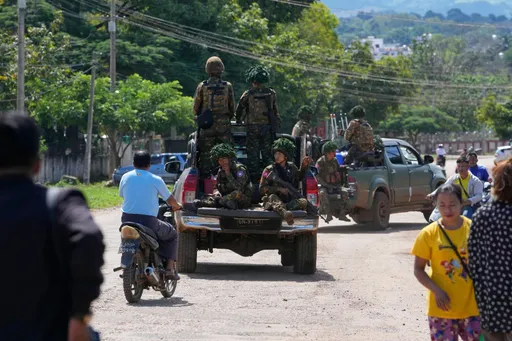As the Russian tanks roll slowly towards the Ukrainian Capital of Kiev, it’s easy to forget that this is Russia’s second war in as many years, and on as many continents.
The first — in Syria where Putin staked Russia’s claim to be a resurgent superpower — gives us much insight into Russian thinking behind the Ukraine war, a decision which has baffled many observers. When assessing Russia’s behaviour and history in Syria it becomes clearer what Putin is attempting to achieve in Ukraine.
Putin foresaw his Syria gambit as part of a global chess match against the West envisaging himself running circles around the United States and Europe by pulling the carpet from under them in a highly contested, strategic arena and that was just the start.
Essentially, the invasion of Ukraine was a decision taken a while ago and built on the back of the limited success Russia enjoyed in Syria. Anton Mardasov, a non-resident scholar at the Middle East Institute, told me that “In Syria and Ukraine, Russia was preparing for an invasion long before the official announcement of its beginning.”
He also adds that in Syria, many Russian military experts knew about the coming operation several months before it began, and the rest of the world "started talking about it rather late".
Syria was where it all started
Vladimir Putin’s military intervention in Syria in September 2015 not only altered the delicate balance of power in the conflict in favour of the embattled Bashar al Assad, but also made a mockery of the US by pouncing on then-President Barack Obama’s indecision in addition to sidelining Europe completely.
After a brutal initial campaign that showcased tremendous firepower, the Russian leader established a free reign over Syria and refused to view the United States as a partner, rather, he considered them an enemy. He then “withdrew” in 2016 citing “achieved goals” as the cause.
Russian military support for Syria was not necessarily a new phenomenon, in the two years before the crisis, Russia sold Assad a batch of MiG-29SMT fighters and above 30 Pantsir S1E air-defence systems, contracts, as estimated at the time, was worth up to over $2.7 billion.
But the moment Russia got involved, bombers started flying around 510 sorties crushing all resistance, from then on Putin became emboldened.
Only after changing the fortunes of the Syrian conflict to its favour did the Kremlin start to become more aggressive, supporting Syrian army incursions further north towards Idlib and Aleppo adding to a problematic scenario with Türkiye and the United States.
Yet despite consolidating Russian interests, little was done to create a peace structure in the country. Putin said in 2021 that the presence of foreign troops in Syria "undermines your ability to use your best efforts to consolidate the country and promote recovery at a pace that would have been possible if the legitimate government controlled the entire country."
After Syria was in Russia’s pocket, the attention quickly turned to Ukraine and other areas of expansion.
Challenging the international order
Despite being Moscow’s only remaining ally in the region, Syria took on greater significance for the Kremlin after NATO proceeded to crush Colonel Gaddafi's military by imposing a “No-Fly-Zone” which was used as a great light to arm the rebels and attack the Libyan regime.
This created a plausible concern in Russia that a quick western intervention would pull an ally such as Syria from under its feet and deprive Moscow of its only Naval base in the Mediterranean in Tartus.
Russia’s main aim from the intervention in Syria was to swiftly change the situation on the ground to its benefit whilst not being bogged down in long protracted war such as Afghanistan, but the success of Putin in Syria was really that he had gained a desire to push Russia further and pounce on the division and lack of awareness in the West.
So, from having a defensive policy at first, he has grown into seeking a more adventurous policy after being unchecked, culminating in today's Ukraine crisis.
Putin ensured his military was in a good state as Mardasov observed “Russia has corrected many of the shortcomings of high-precision ground, sea and air-based weapons that were identified during the use of missile systems in Syria. In Ukraine, high-precision weapons are used quite actively and more accurately.”
Adding that, “In general, Russia did not make a rather important conclusion from the Syrian War: Any military campaign lasts longer than planned, especially if there are big problems with the analysis of the situation at the theatre of future hostilities.”
With the outcome of the crisis in Ukraine unknown, those who covered Syria these past years are well aware of Putin’s intentions to bring Russia back to its Soviet Union-style superpower status, Syria was the stepping board and Ukraine will be the final step to achieve that.























